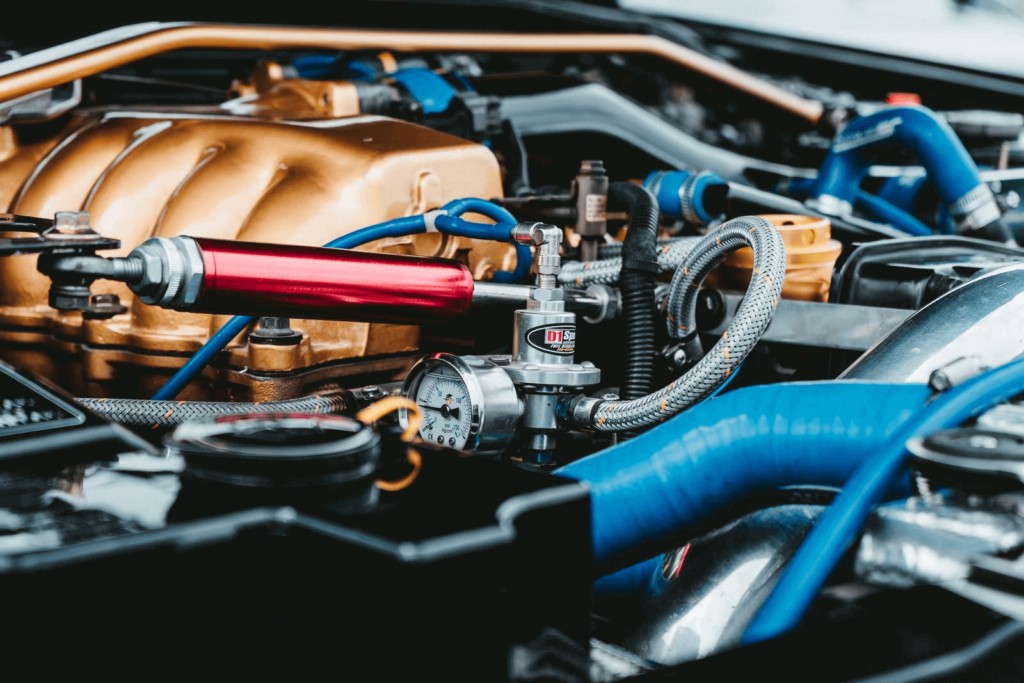Car tuning, the art of modifying a vehicle beyond its factory settings, offers a world of possibilities for car enthusiasts seeking enhanced performance, improved handling, or a unique aesthetic. From subtle tweaks to major overhauls, understanding the Different Types Of Car Tuning is crucial for making informed decisions about customizing your vehicle. This guide delves into the various categories of car tuning, exploring popular methods and techniques.
Exploring the Diverse World of Car Tuning
Whether your goal is to dominate the track or simply turn heads on the street, there’s a tuning category tailored to your needs. Let’s explore the most common types:
Performance Tuning: Unleashing Your Car’s Potential
Performance tuning focuses on enhancing a vehicle’s speed, acceleration, and overall driving dynamics. This can involve modifications to various components, including:
- Engine Tuning: From ECU remapping and chip tuning to turbocharging or supercharging, engine tuning aims to maximize power output. Upgrading air intakes and exhaust systems further enhances performance.
- Suspension Tuning: Optimizing the suspension system with coilovers, sway bars, and adjustable shocks improves handling and cornering precision.
- Drivetrain Tuning: Upgrading the clutch, differential, flywheel, and transmission enhances power transfer and responsiveness.
Suspension Tuning: Mastering the Road
Suspension tuning goes beyond performance, impacting both handling and ride comfort. Key areas include:
- Air Suspension: Offering adjustable ride height and comfort, air suspension provides a customizable driving experience. However, it can be complex and require more maintenance.
- Suspension Bearings: Upgrading to stiffer materials like polyurethane reduces flex and improves responsiveness.
- Sports Suspension: Utilizing stiffer springs, high-performance shock absorbers, and upgraded sway bars, sports suspension prioritizes precise handling and reduced body roll.
Engine Tuning: The Heart of Performance
Engine tuning delves into the core of your vehicle’s power plant, optimizing its mechanical and electronic components for increased output and efficiency:
- Expanding Cylinder Capacity: Techniques like boring or stroking the engine increase cylinder volume, allowing for greater fuel and air intake.
- Increasing Engine Power: Turbochargers, superchargers, and performance component upgrades boost horsepower and torque.
- ECU Remapping: Modifying the Engine Control Unit’s software optimizes fuel delivery, ignition timing, and other parameters for improved performance.
Body Tuning: Aesthetics and Aerodynamics
Body tuning focuses on enhancing a vehicle’s visual appeal and aerodynamic performance:
- Rims and Tires: Upgrading to performance tires and custom rims improves grip, handling, and aesthetics. Lighter rims can also enhance fuel efficiency.
- Coilovers: Adjustable coilovers allow for personalized ride height and damping settings, optimizing both appearance and handling.
- Strut Mounts and Struts: Upgrading these components enhances stability and steering response.
- Lowrider Tuning: This specialized tuning style focuses on dramatically lowering the ride height for a distinctive look.
Light Tuning: Illuminating the Night
Light tuning enhances both visibility and aesthetics:
- Lighting Tone, Shape, and Brightness: Upgrading to brighter and more focused lighting systems, such as LEDs or HIDs, improves visibility and modernizes the vehicle’s appearance. Customizing the tone and shape of lights adds a personal touch. Brighter, cooler tones generally offer better visibility in low-light conditions.
Choosing the Right Path: Setting Your Tuning Goals
Before embarking on your tuning journey, define your objectives. Whether it’s increased horsepower, improved fuel efficiency, or enhanced handling, a clear goal will guide your modification choices. Consider your budget, driving style, and intended use of the vehicle.
Beyond Racing: Tuning for Everyday Driving
Car tuning isn’t just for race cars. It can significantly improve the everyday driving experience by enhancing responsiveness, comfort, and personalization. Upgrading interior components, adding unique paint jobs, and customizing the exterior further enhance the enjoyment of owning and driving a tuned car.
The Importance of a Qualified Tuner
Choosing a certified tuning company is paramount. Their expertise ensures safe and effective modifications using quality parts, often backed by warranties. Certified tuners also ensure compliance with local laws and regulations.
DIY vs. Professional Tuning: Weighing the Risks and Rewards
While DIY tuning offers cost savings and a learning experience, it requires significant knowledge and specialized tools. Improper tuning can lead to decreased performance, damage, and safety hazards. Professional tuning provides expertise and quality assurance, minimizing risks.
Impact on Value: Does Tuning Affect Resale Price?
While tasteful and professionally executed tuning can enhance a car’s value by improving performance and aesthetics, excessive or poorly done modifications can negatively impact resale value. Always check a tuned car’s history and condition thoroughly before purchasing. Consider using a service like carVertical to obtain a detailed vehicle history report, revealing potential issues and ensuring the car’s value aligns with its condition.
The Cost of Customization: Budgeting for Your Tuning Project
Car tuning costs vary greatly depending on the type and extent of modifications. Simple upgrades can be relatively affordable, while extensive engine or body work can require a significant investment. Establish a realistic budget before starting your project.

